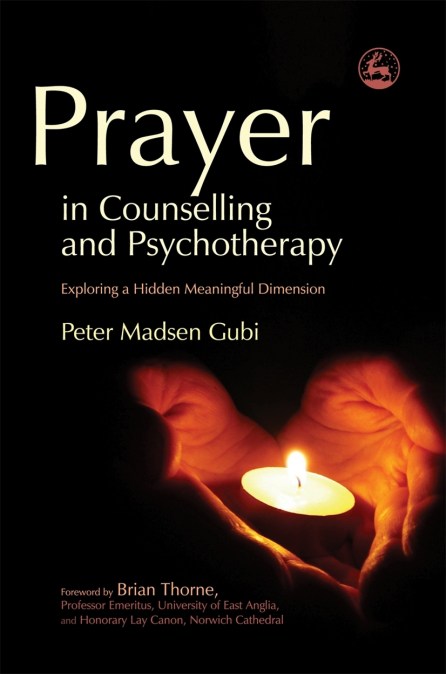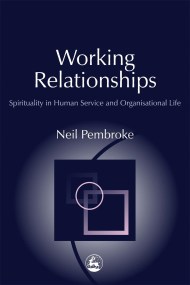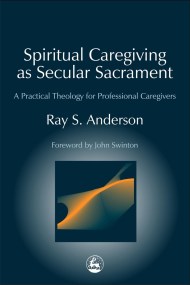Prayer in Counselling and Psychotherapy
On sale
15th December 2007
Price: £21.99
Peter Gubi’s book, the fruit of both his own extensive research and a detailed study of the available literature, explores in depth the way prayer is, and could be, used in counselling and psychotherapy.
This book would provide excellent material for a group of counsellors to share and reflect on. Gubi’s book is a fine guide to anyone ready to seriously explore these issues.’
– Thresholds
‘… [A] challenge to all therapists to examine their own presuppositions and prejudices and to discover, in so doing, an enhanced flexibility without losing their integrity. It is not recommended reading for those settled in their ways or unwilling to acknowledge their own spiritual yearnings or their lack of courage in the face of another’s spirituality. Prayer can be a tough discipline and Peter Gubi demonstrates that its incorporation into the work of the therapist requires no little courage and a willingness to explore afresh what constitutes ethical behaviour as opposed to following the rule book.’
– from the foreword by Brian Thorne, Professor Emeritus, University of East Anglia, and Honorary Lay Canon, Norwich Cathedral
Within mainstream counselling and psychotherapy there is growing interest in the spiritual dimension of counselling. Prayer is at the centre of most spirituality and prayer is important to many people’s psychological well-being.
Peter Madsen Gubi argues that philosophically, all counselling can be regarded as prayer, particularly when working at relational depth; that prayer plays an important part in maintaining many mainstream counsellors’ well-being and, with caution and considered ethical awareness, prayer can be integrated ethically into counselling when working with people of faith. The use of prayer in counselling is not the antithesis of counselling as some have argued, but can be identified with many accepted therapeutic practices.
Grounded in his doctoral research among mainstream counsellors whose work includes prayer, this book encourages counselling and psychotherapy practitioners, and those with an interest in the welfare of others, to consider carefully the ethical place of prayer in counselling.
This book would provide excellent material for a group of counsellors to share and reflect on. Gubi’s book is a fine guide to anyone ready to seriously explore these issues.’
– Thresholds
‘… [A] challenge to all therapists to examine their own presuppositions and prejudices and to discover, in so doing, an enhanced flexibility without losing their integrity. It is not recommended reading for those settled in their ways or unwilling to acknowledge their own spiritual yearnings or their lack of courage in the face of another’s spirituality. Prayer can be a tough discipline and Peter Gubi demonstrates that its incorporation into the work of the therapist requires no little courage and a willingness to explore afresh what constitutes ethical behaviour as opposed to following the rule book.’
– from the foreword by Brian Thorne, Professor Emeritus, University of East Anglia, and Honorary Lay Canon, Norwich Cathedral
Within mainstream counselling and psychotherapy there is growing interest in the spiritual dimension of counselling. Prayer is at the centre of most spirituality and prayer is important to many people’s psychological well-being.
Peter Madsen Gubi argues that philosophically, all counselling can be regarded as prayer, particularly when working at relational depth; that prayer plays an important part in maintaining many mainstream counsellors’ well-being and, with caution and considered ethical awareness, prayer can be integrated ethically into counselling when working with people of faith. The use of prayer in counselling is not the antithesis of counselling as some have argued, but can be identified with many accepted therapeutic practices.
Grounded in his doctoral research among mainstream counsellors whose work includes prayer, this book encourages counselling and psychotherapy practitioners, and those with an interest in the welfare of others, to consider carefully the ethical place of prayer in counselling.
Newsletter Signup
By clicking ‘Sign Up,’ I acknowledge that I have read and agree to Hachette Book Group’s Privacy Policy and Terms of Use
Reviews
...relevant not only to counsellors but to anyone who offers care within a pastoral setting and prays with people.
Gubi is not just giving his own opinion, but has done a tremendous amount of research on the subject. He defines spirituality (all spirituality, not just Christian.) and he reflects on the psychological impact of prayer and its ethical use.
It is a very comprehensive book for those who want, like Gubi, to introduce spirituality and prayer into mainstream counselling and psychotherapy practice as an accepted intervention with the benefits and dangers that any intervention poses. And it is an encouragement for all who have been using prayer all along, but felt rather alone in it and not sure about sharing this, even with their supervisors.
Peter Madson Gubi, principle lecterer in counselling at the University of Central Lancashire, points out that prayer is at the centre of most people's spirituality and that it is important to the psychological wellbeing of many patients. His well-written contribution from the field of psychotherapy and counselling features an extensive literature review.
Gubi does a fine job of consolidating and outlining literature relevant to the discussion concerning the use of prayer within the context of therapy.




